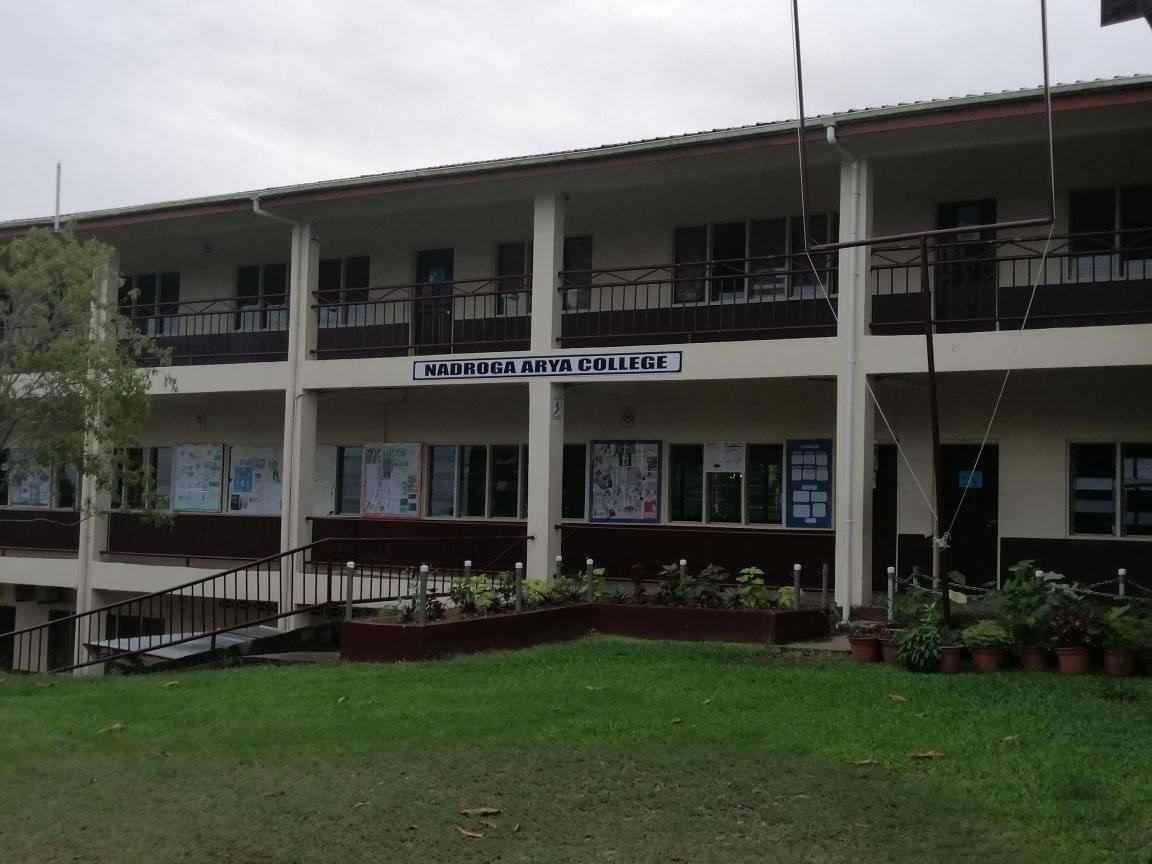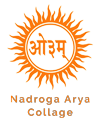A History Of The College
The overriding factor to establish yet another secondary school in Fiji was based on the philosophy and principal of Arya Samaj and its founder, Swami Dayanand Saraswati, who highlighted through the sixth and eight principles of Arya Samaj that- “The prime object of the Arya Samaj is to do good to the world, that is, to promote physical, spiritual and social good of every one and “We should dispel” avidya” ignorance, and promote “vidya “knowledge.” Remaining true to these principles, the Arya Pratinidhi Sabha of Fiji (APS) pioneered the establishment of its first educational institution in Fiji as early as 1916 at Saweni in Lautoka. Subsequently, a number of other schools sprang up in different parts of Fiji and today the Sabha is the proud owner of 13 Primary, 6 Secondary and 1 Commercial school in which children of all ethnic groups receive education. The Nadroga Arya Samaj made an application to the APS in 1987 to establish a school in its area.

The members felt strongly to have a center of their own so as to provide something constructive to the people of the area. It took quite some time before any positive steps were taken to begin preliminary work. It was however, decided that a secondary school be established in the Tikina of Malomalo between the then two existing secondary schools at Lomawai and Cuvu.
An Executive Committee meeting of APS held a Naidovi Indian School at Cuvu appointed a special committee to get the project off the ground. Its members were Pt. Kamlesh Arya (Chairman), Pt. Bhuwan Datt (Secretary), Mr. J. N. Jokhan (Treasurer), Late Mr. Moti Ram (School Manager). And committee members – Pt. Narendra Prasad, Late Mr. Bijen Datt, Mr. Ambika Prasad, Mr. Ramesh Chand, Late Mr. B.P. Rattan, Mr. Krishna Datt and Late Mr. Uttam Singh. In addition, a 3-member team of Mr. Moti Ram, Mr. Sharda Nand and Mr. Shanti Saroj was appointed to look for a suitable site.
Within a span of a few months, a suitable site was located (where the school stands now) and subsequently purchased at a total cost of $38000. The total area being 8 acres, registered on Crown Land C. Immediately after, on 27/06/96 an application was lodged with the Ministry of Education to establish a secondary school. But it took quite some time before the final approval was given. It is important to note that the law firm of Sir Vijay Singh and Mr. Azam Khalil MBE, former MP and Chairman of the District Development Committee greatly assisted in getting the approval.
Raising sufficient funds to get the project off the ground remained the main area of concern. But the project got a major boost with a handsome donation from the legacy of the Late Pundita Ram Kumari, a registered priest and retired school teacher of Cuvu. This was supplemented by cash donations from members, friends, well – wishers and supporters of the school, and a major portion through a bank loan.
With funding secured, an Executive Meeting of APS was held a Tuva Indian School on 1st December, 1996 where initial plans and other associated details were approved. It took about six months before the construction of the first stage began, comprising 2 classrooms, 1 office block, 1 science laboratory, toilets and a water tank began. It was marked by a special foundation – laying ceremony on 27th July, 1997. The Chief Guest was Mr. Dewan Chand, Managing Director of Quality Print, Suva. The tender for the construction was awarded to M. Khan Construction of Tuva, Sigatoka at a total cost of $83 000. In addition, the committee undertook 2 additional projects – construction of 1 staff house for $12000 and digging bore-holes for water with a government subsidy, costing $4700.
With the completion of the first stage, the new premises were inaugurated by the President of APS, at a special ceremony held on 18th January, 1998. On January 19th, the school opened for classes. The first teachers were Mr. Shrees Chand (Principal), Mr. Nilesh Lal, and Mrs. Sanjeshni Chaudhary, and Miss Seema Chand (Clerk/ Typist). Mrs. Chaudhary resigned after 2 weeks and was replaced by Mrs. Sashi Rai. The student roll was 28 – 17 girls and 11 boys, who were divided into 2 streams for Form 3. Later in the year, a Yag Shala/ classroom was built as a fitting tribute to the legacy of the Late Pundita Ram Kumari, who was also conferred the honour of ‘AryaRatna’ posthumously .
The year 1999 saw and increase in staff members to 4 – Mr. Shrees Chand (Principal), Mr. Nilesh Lal (VP), Miss Sharmila Sharma, Miss Nilma Sharma and students to 98 (Form 3 and 4). A major boost to our expansion program was given by a grant of $50 000 from the Canada Fund for the construction plan of the Home – Economics Centre. This marked the second stage of our construction plan which included the Home – Economics Centre, 2 classrooms and a Woodwork shop. The entire project cost $100 000.
1999 was also a historical year when the first lot of 34 candidates wrote the FJC examination. The number of passes was 28 – 8 A grades, 6 B grades and 14 C grades, giving an average pass rate of 81%.
The new millennium saw further growth of the college. The staff number rose to 9 – Mr. Shrees Chand (Principal), Mr. Nilesh Lal (VP), Miss Sharmila Sharma, Miss Nilma Sharma, Miss Rinku Ranjeeta Chand, Miss Sereima Tuiyalava, Mr. Sanjay Kumar, Mr. Marika Raqona and Miss Gitashni Mala. Later in the year Mr. Nilesh Lal, Miss Gitashini Mala and MsSima Chand (clerk /typist) resigned and were replaced by Mr. David Shailen Prasad, Mr. Atil Avinesh Singh and Mrs. Sanjula Gosai respectively. The student population also rose dramatically from 98 to 176 (form 3 – 5)
In addition, a number of new subjects was introduced, namely: Home Economics, Technical Drawing, Wood Work, Biology, Chemistry, Physics and Geography. Physical expansion continued. Two more classrooms were built to accommodate increasing student population. A record number of 58 students wrote the FJC Examination.
Looking back at the history of the institution, one can say with pride that its establishment is a glowing example of sacrifice, dedication and commitment on the part of the Chairman and members of the Project Committee and the APS founded on the basis of the philosophy and the principles of the Arya Samaj for prosperity of the people of Malomalo. On behalf of the staff, students, parents and the community at large, we salute them for their foresight.
